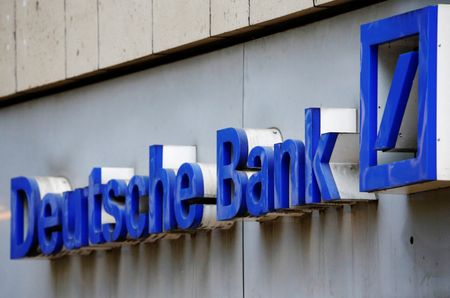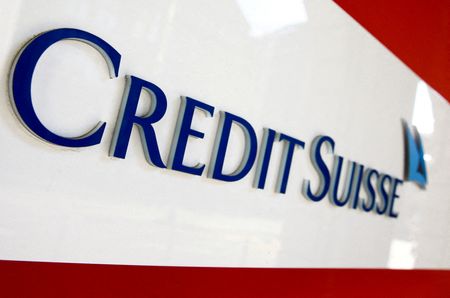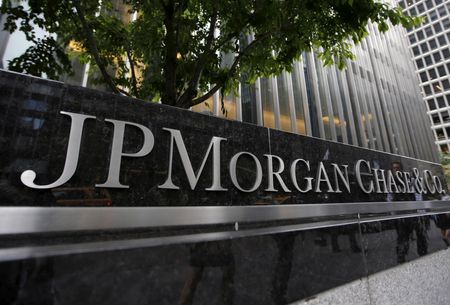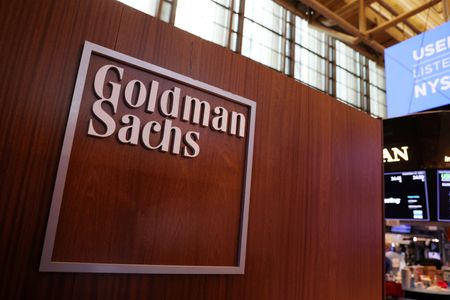 1
1 1
1




By Tom Sims, Carolyn Cohn and Jesús Aguado
LONDON (Reuters) – Deutsche Bank said it was not withdrawing completely from Russia, drawing anger from investors and contrasting with Wall Street banks which are severing ties with the country over its invasion of Ukraine.
Banks and asset managers have joined many other Western companies in pulling back from Russia following a raft of sanctions on the country.
“We are often asked why we are not withdrawing completely from Russia. The answer is that this would go against our values,” Chief Executive Christian Sewing said in a note to Deutsche Bank staff on Thursday.
He added that it would not “be the right thing to do in terms of managing those client relationships and helping them to manage their situation”.
Bill Browder, an investor campaigning to expose corruption, said that by staying in Russia, Germany’s biggest bank “is completely at odds with the international business community and will create backlash, lost reputation and business in the West”.
Russian forces bearing down on Kyiv were regrouping northwest of the Ukrainian capital, satellite pictures showed on Friday, and Britain said Moscow could now be planning an assault on the city within days.
Russia calls its actions in Ukraine a “special operation.”
Tim Ash, senior emerging market sovereign strategist at BlueBay Asset Management, said it was “just not good enough from DB”.
“Perhaps DB needs to take a fresh look at its own ESG (environmental, social, governance) framework,” he said.
Fund managers are reassessing their approach to governance as a result of the invasion.
Goldman Sachs Group Inc and JPMorgan Chase this week became the first U.S. banks to suspend business in Russia.
Goldman Sachs, which has a credit exposure to Russia of $650 million, said on Thursday it was winding down its business there. Any losses would be “immaterial,” according to a source familiar with the situation.
JPMorgan also said it was “actively unwinding Russian business” and was not pursuing any new business there.
JPMorgan has about 160 staff in Moscow. The bank did not list Russia in the top 20 countries where it has the most exposure, in its most recent filings.
The world’s biggest insurance brokers Marsh and Aon also said on Thursday they were halting operations in Russia.
Deutsche Bank said earlier this week its credit risk exposure to Russia and Ukraine was 2.9 billion euros ($3.18 billion) and that it had reduced its Russia exposure further over the past two weeks.
Credit Suisse, Italy’s UniCredit and France’s BNP Paribas have also disclosed billions of euros’ worth of Russia risk.
“Most European banks are applying the strictest sanctions and even going further, trying to do what is right and what needs to be done,” Ana Botin, president of the European Banking Federation and executive chairman of Santander, said in an interview with Spain’s El Mundo newspaper published on Friday.
While the potential losses among major European lenders are not big enough to threaten their stability, analysts and investors fear it could derail their turnaround plans and halt payouts to shareholders.
European banking stocks have had a reprieve this week, however, clawing back some of their sharp losses made since the invasion.
($1 = 0.9269 Swiss francs)
($1 = 0.9119 euros)
(Writing by Carolyn Cohn; Editing by Susan Fenton)